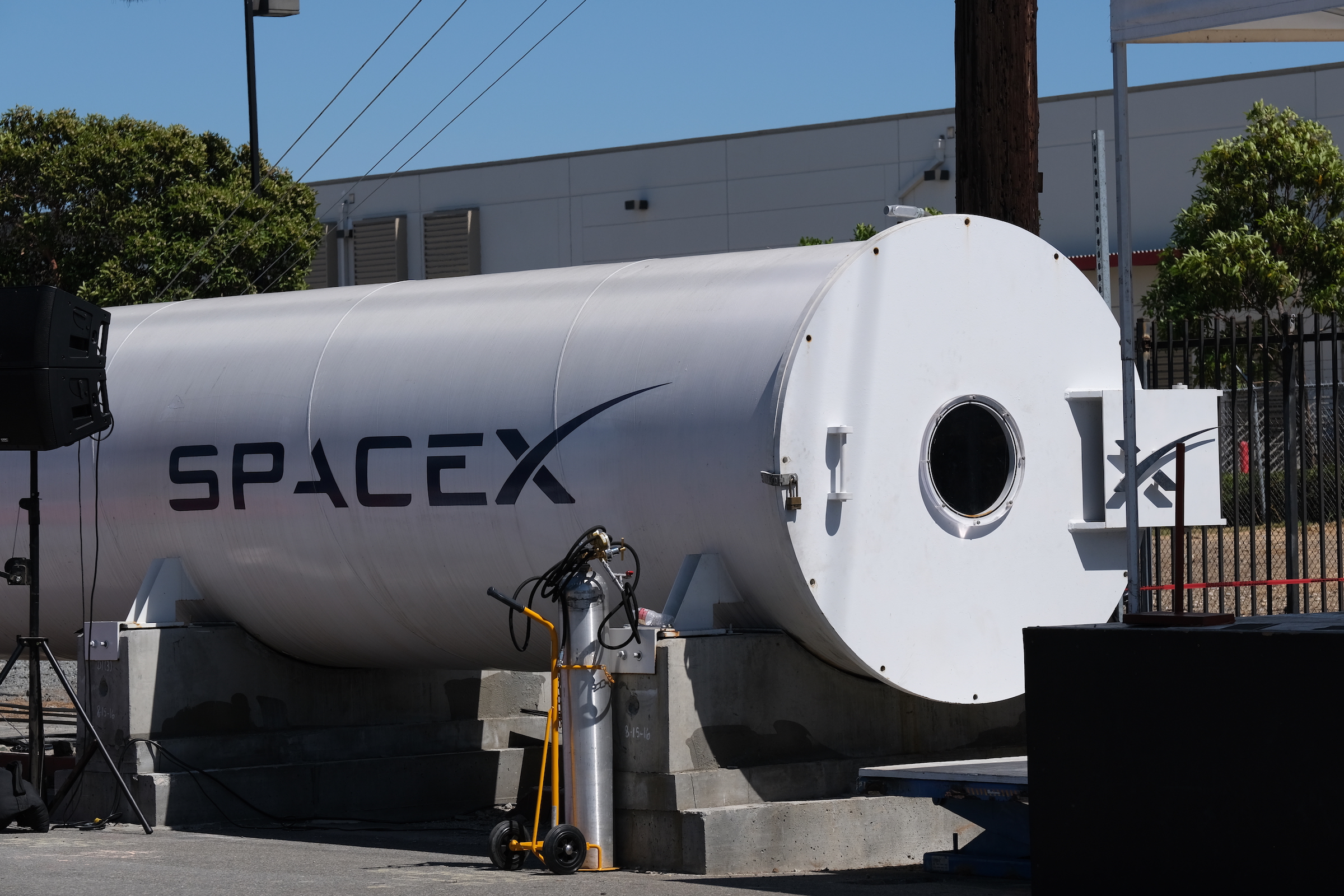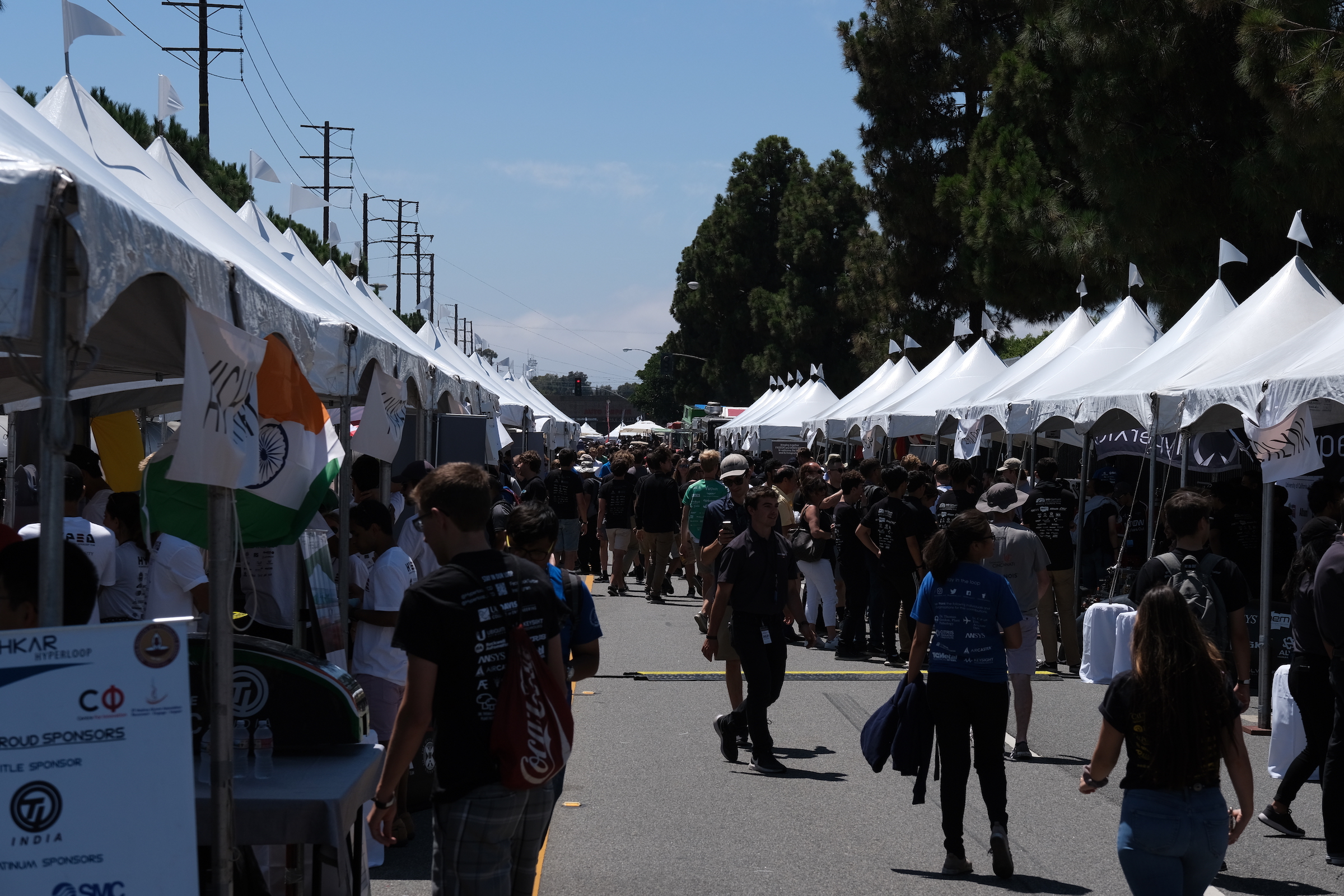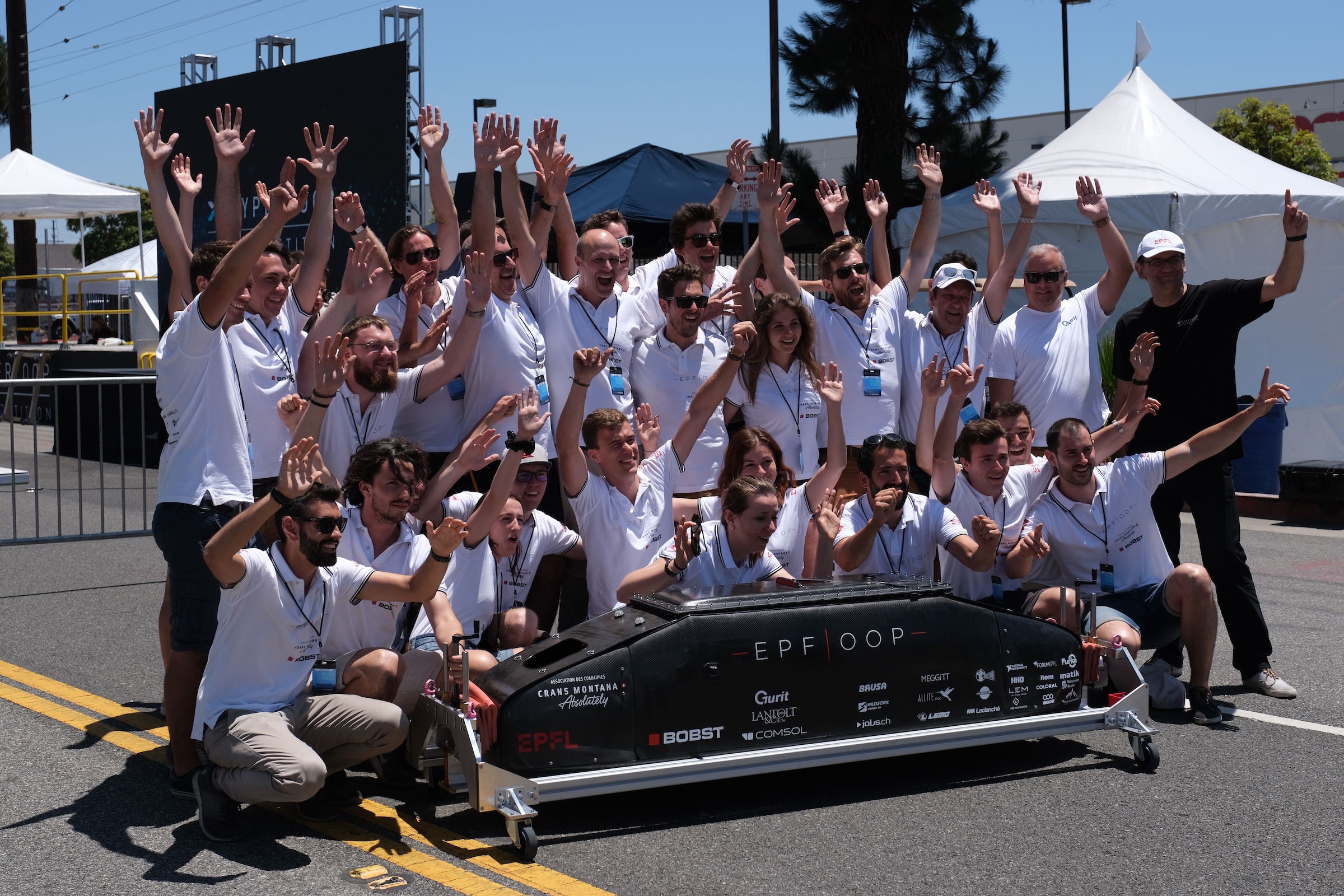SpaceX hosted its fourth annual SpaceX Hyperloop Pod Competition finals on Sunday at the test tube it built outside its Hawthorne HQ. We were on site for the competition, and watched as Team TUM, from the Technical University of Munich, took home the win thanks to achieving the top speed overall of any team to run in the finals.
TUM (formerly known as team WARR Hyperloop in past competitions) is a repeat winner, and achieved a top speed of 288 mph in this year’s finals. That’s the fastest overall for a Hyperloop pod thus far – it beat its own record from last year of 284 mph set during the third SpaceX student run-off. It wasn’t without incident, however – near the end of its run, there was a spark and some debris appeared to fly off the craft, but it still survived the run mostly intact and satisfied SpaceX judges to qualify for the win.
TUM beat out three other finalist competitors, including Delft Hyperloop, EPFL Hyperloop, and Swissloop. Delft unfortunately had a communication error that cut their run short at just around 650 feet into the just over 3/4 mile SpaceX Hyperloop test track. EPFL managed a top speed of 148 mph and Swissloop topped out at 160 mph.

SpaceX Hyperloop Pod test track at its Hawthorne HQ. This is the end where student teams load in their test pod during the annual competition.
For the teams that did get to run on Sunday, the process involved loading their pod, which are roughly the size of bobsleds but little more than engines on wheels, onto the single track which runs the length of the interior of the Hyperloop test tube. The tube is then sealed and de-pressurized to near vacuum, which is essentially how Musk’s original Hyperloop concept envisioned the super-speed transportation method would work.
All the teams gave a good showing, and the total number of student teams was actually 21, with over 700 individual sin total taking part in the competition from a variety of schools including Cal Poly, the University of Wisconsin-Madison, the Indian Institute of Technology and my own alma mater the University of Windsor (who worked with St. Clair College on their pod).
Teams had to prove to their SpaceX and Boring Company staff advisors that they were ready to run in the tube in order to qualify for the finals, and spent two weeks prior to the finals on Sunday trying to do just that. Of those 21 teams, only the four finalists managed to get the green light to run in the final competition, based on advisor criteria that includes safety and survivability of their pod design. There’s a kind of ‘good luck’ mantra at the competition of saying ‘Break a pod’ prior to a run, but SpaceX engineers don’t actually want team pods to experience catastrophic failure inside the tube while on a run. This year, the competition was even more challenging because all pods have to use their own communication systems for the first time, and the pods must be designed to propel themselves to within 100 feet of the far end of the tube before they stop.

21 teams in total competed in this year’s competition, and they all brought their pods to display on race day, even though only four finalists actually ran their pods through the test track.
Most of the teams I spoke to who failed to qualify were dismayed but also resolute on coming back and qualifying next year. Some did express a bit of frustration about the gap between some of the teams from smaller schools, and those in the final four (who do qualify repeatedly year after year). Many of the finalists have deep-pocketed corporate backers, including Airbus, while some of the smaller schools have next to no funding – resulting in a cost delta of hundreds of thousands of dollars when it comes to the total bill for the test pods built.
That said, all the teams are clearly thrilled to be able to participate, and see the competition as a chance to essentially get scored to work at one of Musk’s many high tech ventures, including SpaceX, Tesla and The Boring Company. For those companies, too, it seems like a no-brainer to attempt to recruit from the engineering ranks of these best-in-class technical undergrad and graduate students.

EPFL Hyperloop didn’t win the competition – but they have reason to celebrate, since at least some graduates will probably ‘win’ jobs at Musk’s various companies.
“I think the competition is fun, and inspiring and also useful technology comes out of it,” Musk said regarding the purpose of the event, before answering a final question from Boring Company President Steve Davis about whether or not there will be another competition next year – “Oh yeah of course,” Musk replied, to much applause from the crowd of competitors.
No comments:
Post a Comment